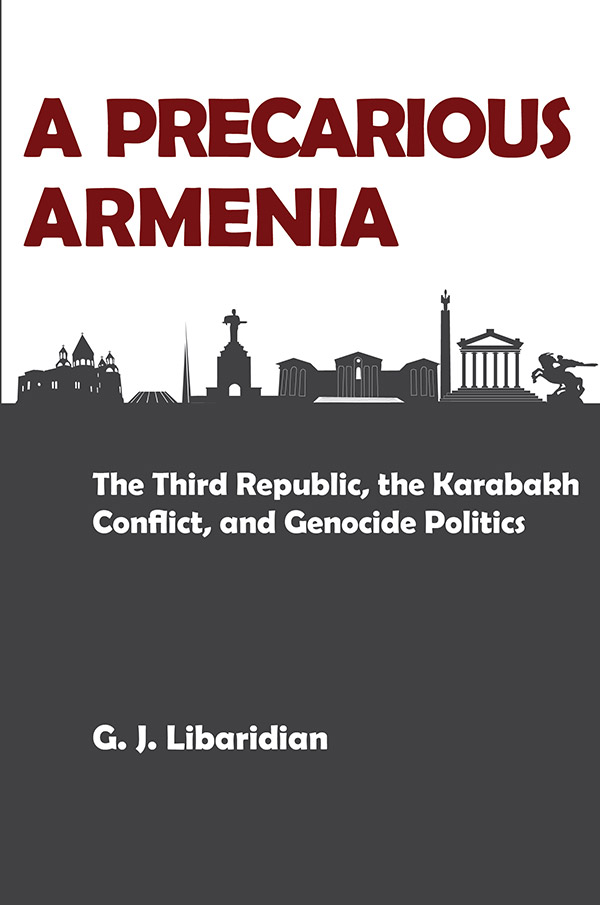Books

A PRECARIOUS REPUBLIC: The Third Republic, the Karabakh Conflict, and Genocide Politics
G. J. Libaridian explores a number of fundamental issues regarding Armenia’s foreign and security policies and scrutinizes Armenian political culture as the framework within which positions have been defined and solutions sought. The previously published and unpublished materials collectively analyze the political thinking that characterized the response to the challenges that the Third Republic faced and failed to address from the standpoint of statehood versus a vague but powerful nationalist discourse. The author achieves this difficult task by studying themes such as Armenia and Armenians as agents of their own history as opposed to the dominant sense of victimhood, maximalism confused with patriotism, the role of mediators and other states as saviors, the comfort zone of illusions and legends as opposed to hard realism and pragmatism. Libaridian argues that the dominant but faulty framework led leaders of the state and Diaspora to a policy that bet on war rather than peace, a second Karabakh war that Armenia lost in 2020, a war that should have been avoided.
ABOUT THE AUTHOR: Gerard J. Libaridian is a retired historian and diplomat. Between 1991 and 1997 he served as advisor to the first President of Armenia and was First Deputy Minister of Foreign Affairs, Secretary of the National Security Council, and negotiator with Azerbaijan and Turkey He has taught and written on Armenian history and authored numerous books, articles and reports on contemporary Armenian, Middle Eastern and South Caucasus politics and international relations. He has also taught and lectured extensively in institutions of higher learning in the US and internationally. Most recently (2000-2012) he was Alex Manoogian Professor of Modern Armenian History at the University of Michigan, Ann Arbor, where he also served as Director of the Armenian Studies Program. Libaridian is currently working on a number of book projects.